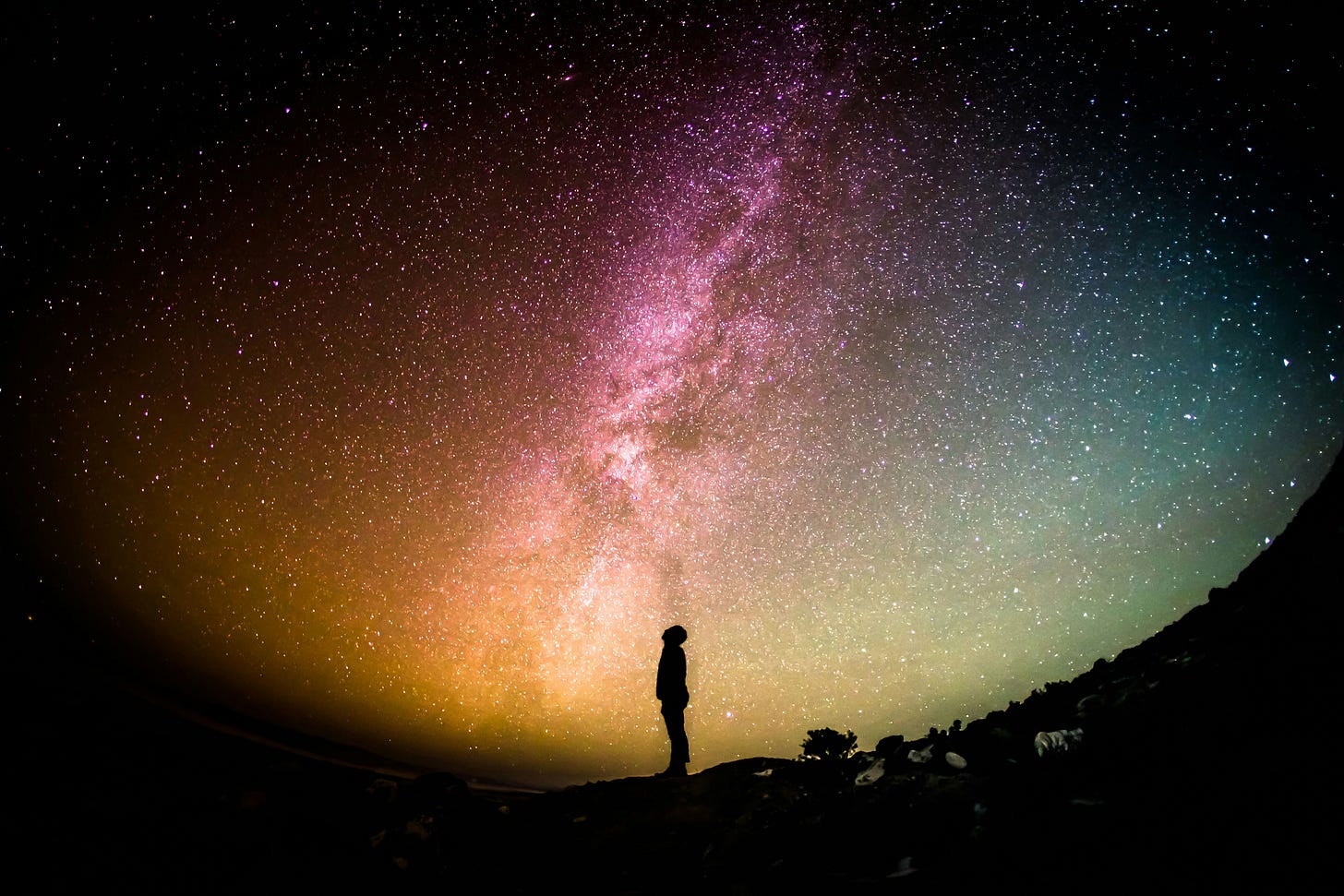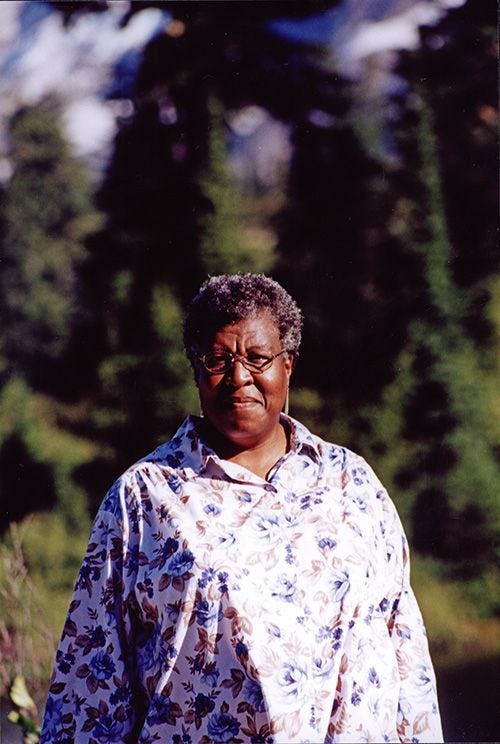Greetings! This is Part 2 in a series about myth, speculative fiction, and social change. Catch up on the rest of the series using the links below.

Here’s a quick reminder of the definition of myth that I am working with for this series:
A myth is a world-building, often cosmological and cosmogonic story that explains how something came to be. A myth is not merely a religious fiction or collective delusion, but a narrativized set of organizing principles that shapes the reality of entire groups of people.
Jasmyne D. Gilbert, Starshine and Clay: Polaris Manifesto Part 1
Many of the great mythic traditions of the world emerged as reactions to change, or in resistance to a social and material reality that their founders wanted to defy. For example, Siddhartha Gautama resisted the class hierarchy of ancient Hindu society. Muhammad ibn Abdallah saw through hypocrisy and inequities in Mecca. The Enlightenment was a response to the violence and instability of the "irrational" Protestant Reformation, which itself was a revolt against the elitism and strictures of the Catholic Church. Each of these traditions—Buddhism, Islam, and Christianity—introduced sweeping, world-changing movements that continue to reverberate in the present.
Other examples of the ways myth has shaped culture include the Renaissance and the counterculture movement, most notably for how the convergence of religious institutions, wealth, and the state influenced or suppressed resistance. Though the people living through those periods did not call their practices myths, their mythic traditions transformed their cultures and have had a lasting influence that echoes even now.
What does all this tell me?
Resistance is our inheritance. Even religion, which I previously understood as peaceable, emerged and grew from conflict.
The ways we live are malleable. If I don't like the way my life is going, I have the power to change parts of it or my perspective. If enough people don't like the ways their lives are going either, that dissatisfaction is fertile ground for a movement.
Change is inevitable, and we have some capacity to influence how it impacts us. I can guarantee that my body and the world will change given enough time. It is up to me to decide how I will respond to those changes, and whether and how I will resist or embrace them.

Prophecy is a Practice
"All that you touch you Change. All that you Change changes you. The only lasting truth is Change. God is Change."
In all its delicious iconoclasm1, that line is the first tenet of Earthseed from Lauren Oya Olamina, the protagonist in Octavia E. Butler's Parables series. I lovingly refer to Olamina as the High Priest of Change2 because she is the founder and leader of a new religion called Earthseed. She created Earthseed to guide herself and others through devastating and life-shattering changes they were witnessing. Earthseed grew from Olamina's defiance of her Christian upbringing, and in the aftermath of a failed U.S. government corrupted by corporations and religious extremism. She was living during a period of dangerous instability but she saw the writing on the wall and decided to respond to Change directly and intentionally.

People often call Octavia Butler a prophet. Take the recent wildfires in Los Angeles for example, which many say Butler predicted in the Parables:
People describe Butler as a prophet for writing those novels; whether she was divinely inspired is less important for this conversation. Instead, by focusing on the definition of prophet that emphasizes visionary leadership - the ability to recognize patterns and project them forward - we can see prophecy as the outcome of a series of events. In that light, a prophecy is subject to influence rather than an immovable matter of fate. Put another way, if The Parables predict our future then Butler has offered readers a skeleton key for unraveling the current sociopolitical climate and transforming our communities.
Jasmyne D. Gilbert, You Don’t Need Another Octavia Butler Think Piece
After the recent fires in Los Angeles, I noticed some folks online taking umbrage with others calling Butler a prophet, and for good reason since it would be all too easy for people who misunderstand her work to fuse the Magical Negro trope with the “Black women will save democracy” phenomenon. I am a student of myth, however, so I am less interested in discarding the possibility of prophecy, precognition, premonition, and other extrasensory ways of knowing. Regardless, it's futile to argue about whether Butler was a prophet or whether prophecy as a concept even exists. To me, her skill with reading the patterns in history and projecting them forward is something we can also learn to do.
This eerie and skillful prescience is why Octavia E. Butler is one of the most lauded speculative fiction authors and why her work has lasting resonance. Her novels have inspired real-life resistance and community-building efforts. A local bookstore named in her honor, Octavia's Bookshelf, has been organizing recovery efforts in response to the Eaton Fire that tore through Altadena mere weeks before the second inauguration of Donald Trump—events she tried to warn us about in the Parables. Just like the founding of major world religions, Butler's legacy demonstrates that the work of resistance and change is the practice of prophecy, a practice that demands vision, kinship, strategy, and will—and a little magic wouldn’t hurt either.
Creative Prompts
Use these prompts to pull a new world from your imagination. Whether you're a writer, a visual artist, a musician, or something in-between, use that spark of imagination to invite us into your creative vision.
What does change mean to you? How do you handle change?
What cultural shifts have you noticed or do you perceive coming? What type of sense perception tells you that?
When do you expect the changes to manifest? Do you sense any of them coming in your lifetime? What is your plan if/when they do manifest?
What changes are you hoping to avoid? What changes do you want to see?
Review your responses to the Polaris Manifesto Part 1 and consider how the stories you are living shape your responses to these prompts.
CEUs
It's important to me to share other audio, text, and video resources that may help you tap into the wave of wisdom that informed this part of the Polaris Manifesto. I've curated several free resources on Are.na for you to enjoy, and a shorter list of pdf and epub materials for paid subscribers below. Enjoy!
Octavia E. Butler, Parable of the Sower and Parable of the Talents
Jasmyne D. Gilbert, "From The End to Eden: Exploring Myth and Literature for a New World" 2024 Mythological Studies Journal, pp. 103-111, (esp. the Speculative Fiction and Dominant Narratives section)
Karen Armstrong, The Great Transformation: The Beginning of Our Religious Traditions
Hyperallergic, The Pasadena Bookstore Taking Cues From Octavia E. Butler
New York Live Arts, Insighting and Forecasting: The Extraordinary Prescience of Octavia E. Butler
For paid subscribers
Keep reading with a 7-day free trial
Subscribe to Between Starshine and Clay to keep reading this post and get 7 days of free access to the full post archives.


